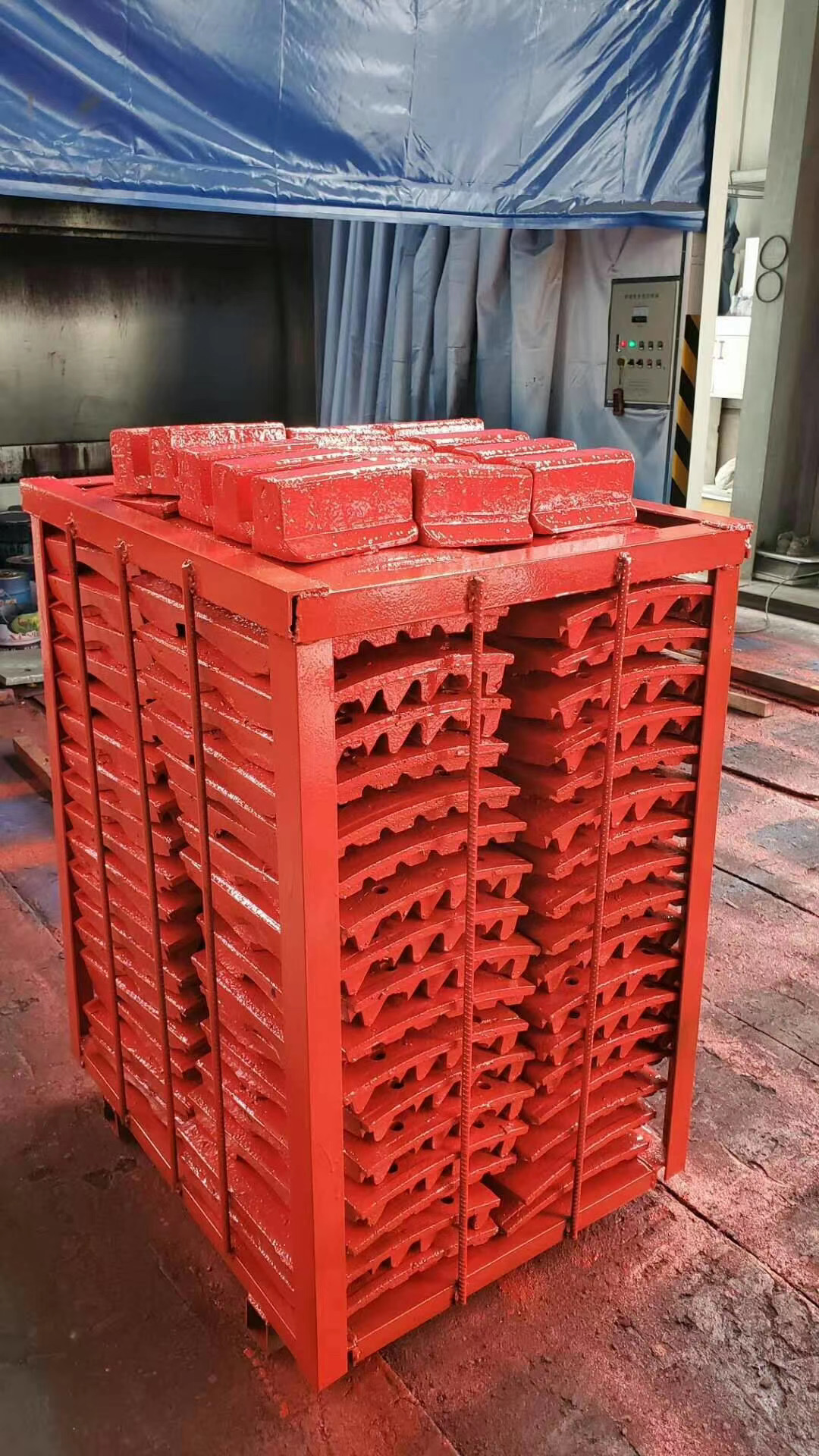





Cast iron has been a cornerstone of industrial production for centuries, with its unique properties making it indispensable in various applications. Hebei Mingda International Trading Company, a leading manufacturer in China, specializes in producing high-quality cast iron plates tailored to meet the demands of modern industries. This article explores the technical specifications, advantages, and applications of cast iron plates, while highlighting the company's expertise in precision manufacturing.
Established with over 16 years of experience, **Hebei Mingda International Trading Company** (河北铭达国际贸易有限公司) has become a trusted name in the production of castings, forgings, and machinery parts. The company's commitment to quality and innovation is evident in its ability to deliver **ductile iron, gray iron, brass, stainless steel, and aluminum** components according to customer specifications. With advanced production techniques such as resin sand casting, lost-wax, and lost foam methods, Mingda ensures precision and consistency in every product.
As a **specialized trading company**, Mingda focuses on providing **customized solutions** for industries ranging from automotive to construction. Their expertise in **CNC precision machining** and **secondary processing** allows them to cater to both domestic and international clients, offering a comprehensive range of services from prototyping to full-scale production.
Cast iron is an iron-carbon alloy with a carbon content exceeding 2.11%, typically ranging between 2.5% and 4%. It contains **iron, carbon, silicon**, and trace amounts of **manganese, sulfur, and phosphorus**. The unique properties of cast iron stem from the form of carbon present in the alloy, which can be categorized into three main types:
**Mingda's cast iron plates** are engineered to meet stringent industrial standards, ensuring durability and performance in demanding environments. The company's ability to produce **malleable cast iron** through high-temperature annealing further expands the material's versatility.
| Parameter | Details |
|---|---|
| Carbon Content | 2.5% - 4% |
| Production Methods | Resin Sand, Lost-Wax, Lost Foam, Sand Molding |
| Material Grades | Ductile Iron, Gray Iron, Malleable Iron |
| Surface Finish | High-quality, precision-machined |
| Applications | Valves, Hydrants, Pumps, Railway Components |
Cast iron plates offer several advantages that make them a preferred choice in industrial applications:
**Hebei Mingda** leverages these advantages to produce cast iron plates that meet the specific needs of clients. Their **10+ years of experience in CNC machining** ensures that products adhere to tight tolerances, even for complex shapes.
Cast iron plates are integral to a wide range of industries. **Mingda's products** are commonly used in:
According to the **National Institute of Standards and Technology (NIST)**, cast iron's role in manufacturing is critical for maintaining precision and reliability in industrial processes. The organization emphasizes the importance of **standardized production methods** to ensure consistency in material properties (NIST).
Mingda's commitment to quality is reflected in its **strict quality control measures** and **advanced production equipment**. The company employs **surface grinding** and **CNC engraving** to achieve precise dimensions and finishes. Additionally, their ability to perform **secondary processing and sub-assembly** ensures that clients receive fully functional components.
For customers requiring **custom designs**, Mingda offers **OEM (Original Equipment Manufacturer)** services. This includes creating **mold patterns** based on customer drawings, ensuring that the final product meets exact specifications.
Cast iron production, while energy-intensive, plays a vital role in economic development. The material's **recyclability** and **long lifespan** contribute to sustainable manufacturing practices. **Mingda** actively works to improve production crafts to reduce waste and enhance efficiency, aligning with global sustainability goals.
From a **cost perspective**, cast iron plates provide a **cost-effective solution** for industries requiring robust, long-lasting components. The material's availability and ease of processing further reduce production costs compared to alternatives like stainless steel or aluminum.
As industries evolve, the demand for **high-performance cast iron** continues to grow. Advances in **additive manufacturing** and **material science** are opening new possibilities for cast iron applications. For instance, **3D printing of cast iron** is being explored to create complex geometries with minimal waste.
**Hebei Mingda** remains at the forefront of these innovations. By investing in **R&D** and adopting **cutting-edge technologies**, the company aims to stay competitive in a rapidly changing market. Their focus on **precision engineering** and **customer-centric solutions** positions them as a leader in the industry.
Cast iron plates are a vital component in modern industrial production, offering a unique combination of strength, durability, and cost-effectiveness. **Hebei Mingda International Trading Company** exemplifies excellence in this field, delivering high-quality products through advanced manufacturing techniques and a commitment to innovation. Whether for **valves, pumps, or railway components**, Mingda's cast iron plates meet the highest standards of performance and reliability.
For more information about **cast iron plates** or to explore **custom manufacturing solutions**, visit Mingda's official website. Discover how their expertise can benefit your next industrial project.
National Institute of Standards and Technology (NIST) - For insights into industrial standards and material science advancements.
Keywords: Cast Iron Plate, China Blind Plate, China Flange Plate, Hot Plate Cast Iron